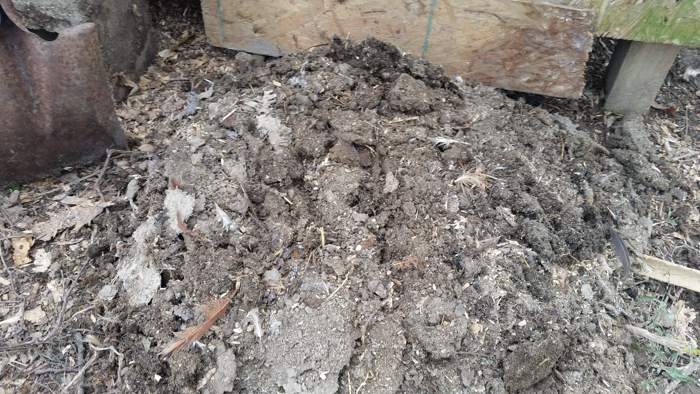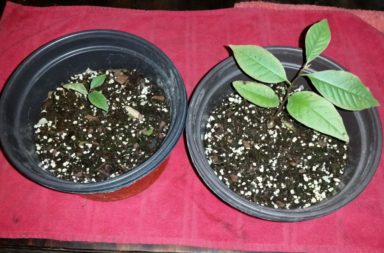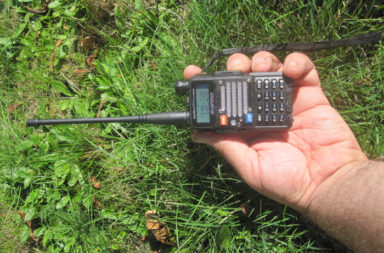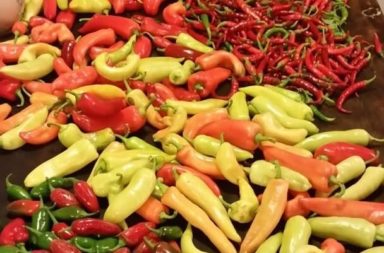Compost is free and an important part to adding nutrients to your survival garden.
There are several different ways to collect your compost. You can buy a compost barrel or build your own little bin. If you are like me, I have a barrel but also have piles just stacking up to being the composting process. Freshly composted soil is known as “Black Gold” because of its rich quality.
Items used for composting are also often of the same type that you would recycle – it’s like you are multitasking when you are composting. You are building important nutrients for your prepper garden, while eliminating waste with scraps, and cleaning up your homestead with the grass clipping and cleaning of the barn – all while recycling without making a trip to the recycle center. You are essentially a composting superhero.
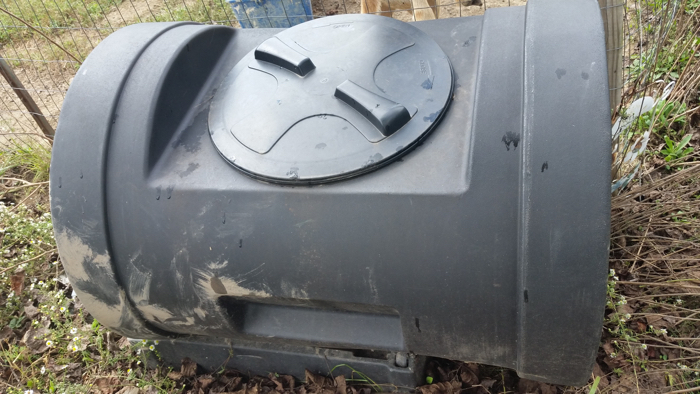
Compost is made with items that create carbon and nitrogen, like kitchen scraps and straw or grass clippings. You will need four parts brown compost for every one part of green for the correct ratio to produce Black Gold level compost.
The brown items produce carbon while the green items produce the needed nitrogen. Too much carbon will cause the compost to decompose more slowly while too much nitrogen can cause it to stink. There are some neutral items that can also be use in the compost bin. These items along with moisture, heat, and time, will create a beautiful and highly beneficial pile of compost to feed your survival garden.
The Good, The Bad, and The Really Bad of Composting
You started to hear Clint Eastwood coming in here didn’t you. Let’s review what you should or shouldn’t use in your compost pile.
The Good
- Kitchen Scraps – It is best to cut up this green matter for quicker decomposing but it is not necessary.
- Egg Shells – They provide calcium. Grind them up for easier break down though they can be composted whole.
- Coffee Grounds and Filters – These are a used green item. Fresh coffee is to acidic for composting, used is more of a neutral base with the benefit of adding nitrogen.
- Tea Bags – Another green item, you can toss them in bags and all.
- Cardboard – This brown item works best if shredded or ripped up for faster decomposition. Remove any tape or stickers first. Allows for air movement.
- Newspapers and Paper – This brown item should be ripped or shredded is best for quicker break down.
- Cotton – Use only natural cotton, synthetic will not decompose.
- Hair and Nails – Who knew? I did not. These green items are a rich source of nitrogen.
- Plants – You can compost either dead or live plants. Seeds are killed when the temperature reaches above 130 degrees in the pile.
- Grass clippings – This green item should be thoroughly dried before putting into the compost pile so they will decompose more rapidly.
- Straw or Hay – These are brown items Hay is higher in nitrogen than straw but both are fine. The tube like pieces of straw are great for air circulation.
- Barnyard Manure – This is another green item. It is very high in nitrogen and has beneficial microbes. It is best to use manure from a plant eating animal. Allow the manure to age a little before use so it doesn’t burn up your compost pile or plants.
- Sawdust or Small Sticks – These brown items will decompose fine and allow for needed air space.
- Leaves – Allow these brown items to dry. Chopping them works best for faster decomposition. Don’t use the leaves from black walnut as they contain a poison that survive composting
- Wood ash– The ash is alkaline in nature with lots of potassium. It is good to use in the composting bin, but only in moderation.
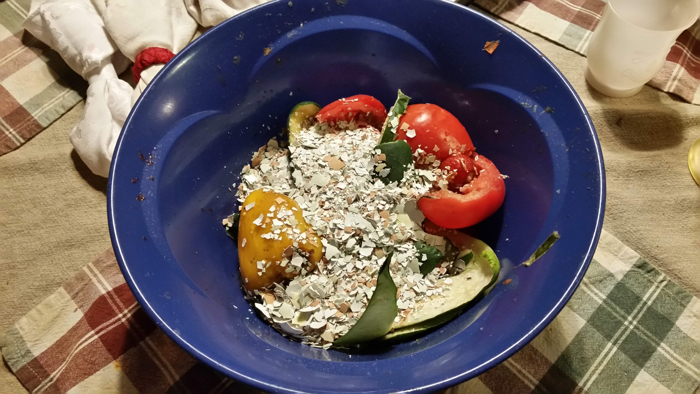
This is a bowl that I keep in my kitchen to throw our scraps in before going to the compost bin.
The Bad
- Lint – If dried, lint from synthetic clothes can be used in the compost pile. Only use lint if it comes from natural articles.
- Latex – Use only if it is all natural. Latex usually contains other items besides rubber.
- Citrus peels – The natural acid kills off microorganisms in the bin.
- Onions – They also have natural acids. They also take forever to break down in a compost pile.
- Breads and Pasta – These items will attract pests, such as raccoons.
- Wood Ash or Sawdust from treated wood should not got into a compost pile.
The Really Bad
- Meat– Because it will smell horrific and attract pests.
- Whole bones – They won’t break down.
- Dairy Products – They will spoil and attract pests.
- Human Feces – They could pose a health risk if not dry – and it’s gross.
- Fats – They slow down the decomposing and can mess with the moisture content.
- Chemicals – There is nothing natural about them – never use.
- Pesticide Treated Items – Again these are not natural, so do not use.
- Dog and Cat Feces – They may have parasites that aren’t safe for putting on or around your plants.
How To Build Your Compost Pile
- The first thing you must do is decide if you want to compost in a bin, barrel, or pile.
- Pick the location for your pile by selecting a dry, shady location that is next to a water supply.
- Next, start by adding some browns and greens as they are gathered. Try to rip the big pieces into smaller ones for better composting.
- Keep the compost damp, the wetness attracts worms and helps it to break down. Once your pile is established keep the compost turned.
- Take a pitchfork or shovel and turn over your pile about once a week. This helps to keep the air moving in it, which helps to decompose it. The more air it gets the hotter it gets making the decomposing faster. If you have a store bought barrel just turn your barrel over to keep it mixing.
- Covering the compost is a way to keep the heat and moisture in but is not required. Once the material is a dark, rich color it is ready to admire and use.
Knowing how to compost is important for anyone running a survival retreat and not a difficult homesteading task, nor is it a time consuming one. Simply tend to your compost pile or barrel on a regular basis so you can begin the next growing season with some Black Gold in your wheel barrel to help ensure a bountiful harvest from your survival garden.
